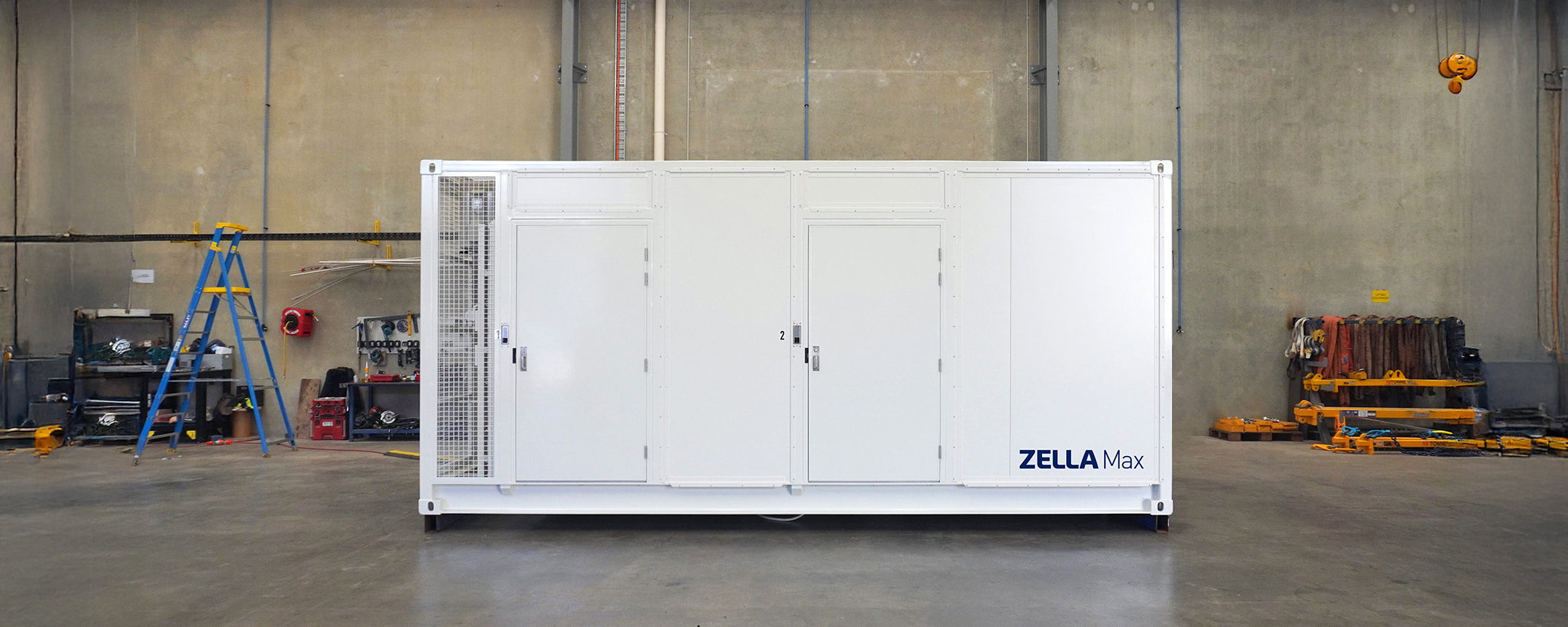The demand for efficient, scalable, and secure data management solutions is higher than ever. Micro data centres (MDCs) have emerged as a pivotal solution, offering the necessary flexibility and robustness to meet diverse IT needs across various industries. As the CTO and co-founder of Zella DC, a leading manufacturer of micro data centres, I’ve witnessed firsthand the transformative impact these compact data centres can have on businesses. Here, I’d like to share some best practices for deploying micro data centres to help you maximise their potential.
1. Assess your needs and objectives
Before diving into the deployment of a micro data centre, it’s crucial to conduct a thorough assessment of your specific needs and objectives. Consider factors such as:
- Workload requirements: Understand the type and volume of data your business handles.
- Scalability: Determine the potential for growth and ensure a plan to scale can scale accordingly.
- Environmental conditions: Evaluate the physical environment where the MDC will be deployed, considering factors like temperature, humidity, and dust levels.
- Security requirements: Assess both physical and cyber security needs to protect sensitive data.
By having a clear understanding of these aspects, you can select an MDC solution that aligns with your operational goals and environmental constraints.
2. Choose the right location
Selecting the optimal location for your micro data centre is critical for its performance and longevity. Key considerations include:
- Proximity to users: Position the MDC close to the end-users to minimise latency and improve response times.
- Environmental suitability: Ensure the location meets the environmental requirements of the MDC, such as appropriate temperature control and ventilation.
- Security: Choose a secure location to safeguard against physical threats, including unauthorised access and environmental hazards.
For outdoor deployments, consider models like the Zella Outback, which are designed to withstand harsh environmental conditions with features like IP65 rating for waterproof and dust-proof protection.
3. Ensure robust security measures
Security is a paramount concern in the deployment of micro data centres. Implement a multi-layered security approach that includes:
- Physical security: Utilise secure access controls such as keypads, proximity cards, and biometric systems. Employ vandal-proof and waterproof enclosures to protect against physical tampering and environmental damage.
- Cyber security: Incorporate encryption, robust password policies, firewalls, and regular security audits to protect against cyber threats. Employ defense-in-depth strategies to create multiple layers of security controls.
At Zella DC, our products are equipped with advanced cyber and physical security features to ensure comprehensive protection for your data.
4. Plan for redundancy and disaster recovery
To ensure continuous operation and data availability, it’s essential to plan for redundancy and disaster recovery. Key strategies include:
- Power redundancy: Implement backup power sources such as generators, uninterruptible power supplies (UPS), and alternative energy solutions like solar panels.
- Network redundancy: Establish multiple network connections to prevent downtime in case of a network failure.
- Data backup: Regularly back up data and ensure that backup systems are tested and reliable.
- Cooling: Consider redundant cooling options to ensure your equipment is protected in case of a malfunction.
By planning for redundancy, you can mitigate the risks associated with power outages, network failures, and data loss.
5. Optimise cooling and energy efficiency
Efficient cooling and energy management are vital for the optimal performance of micro data centres. Consider the following best practices:
- Efficient cooling solutions: Use advanced cooling technologies like precision cooling systems to maintain optimal temperatures and prevent overheating.
- Energy-efficient components: Choose energy-efficient servers, storage, and networking equipment to reduce power consumption and operational costs.
- Regular maintenance: Schedule regular maintenance checks to ensure that cooling systems and energy management components are functioning correctly.
At Zella DC, our micro data centres are designed with pre-configured and pre-commissioned cooling systems, making deployment straightforward and efficient.
6. Leverage edge computing capabilities
Micro data centres are ideal for edge computing applications, providing processing power closer to the data source. This minimises latency and enhances real-time data processing capabilities. When deploying MDCs for edge computing, consider:
- Proximity to data sources: Place MDCs near IoT devices, sensors, and other data sources to ensure rapid data processing.
- Scalability: Ensure that the MDC can scale to accommodate increasing data volumes and processing demands.
- Interoperability: Choose MDC solutions that seamlessly integrate with existing IT infrastructure and edge devices.
Zella DC’s products are designed with the edge in mind; they are easy to deploy even to remote or hard to reach locations and they were built to withstand the harshest environments.
7. Implement a comprehensive monitoring system
Continuous monitoring is essential for maintaining the health and performance of your micro data centre. Key components of an effective monitoring system include:
- Environmental monitoring: Track temperature, humidity, and other environmental conditions to ensure optimal operating conditions.
- Performance monitoring: Monitor server performance, network traffic, and storage utilisation to identify and address potential issues proactively.
- Security monitoring: Implement real-time monitoring of physical and cyber security threats to detect and mitigate risks promptly.
Utilising integrated monitoring solutions, like those available with Zella DC products, can provide real-time insights and enhance the reliability of your MDC deployment. The Zella Sense advanced intelligence and automation system is integrated in all our products and is designed to protect your uptime.
Conclusion
Deploying micro data centres can significantly enhance your IT infrastructure’s efficiency, scalability, and security. By following these best practices, you can ensure a successful deployment that meets your business’s unique needs. At Zella DC, we are committed to providing state-of-the-art micro data centres that deliver exceptional performance and reliability. Get in touch for more information about our range of products and how they can benefit your business.






